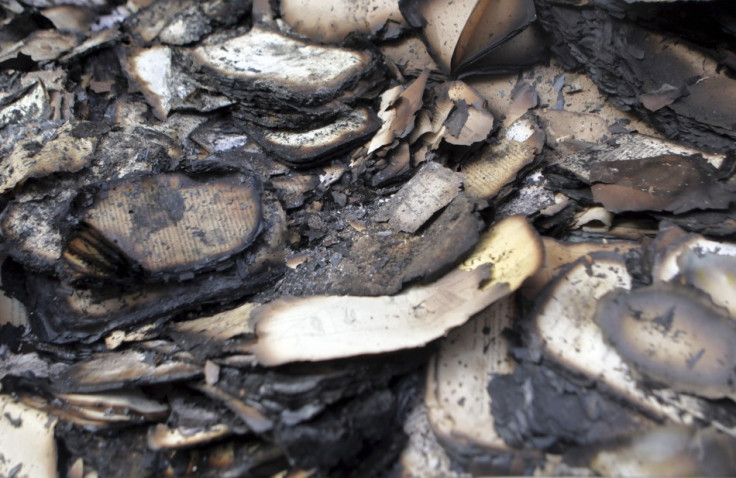Cairo Library in Flames: Are Other Egyptian Monuments too Under Threat?

Renewed violence in Egypt between protesters and the military is assuming alarming proportions and posing an increasing risk to monuments, artworks and manuscripts of one of the world's most ancient civilizations. The most recent casualty was the Egyptian Scientific Institute (the Institute d'Egypte) in Cairo, which was destroyed in a fire on Saturday.
Archaeologists and historians around the world are deeply concerned over the incident and fear damage to other historic monuments in and around Cairo. The city is home to countless ancient mosques, Coptic churches and museums, including the Virgin Mary Coptic Orthodox Church (also called the Hanging Church), the Coptic Museum, the Cairo Citadel and The Museum of Egyptian Antiquities.
A horrific number of rare books, journals, maps and other historical documents have already been reduced to piles of ash over the last couple of days; the period has also seen scores of concerned volunteers, including academic experts and local residents, frantically working to rescue what remains of over 190,000 books and writings.
The Institute d'Egypte, a research center established by Napoleon Bonaparte, during his 1798 invasion of Egypt, was home to some of the rarest manuscripts in the country, including the handwritten 24-volume "Description de l'Egypte", which was set on fire by protesters, according to an Associated Press report.
"The burning of such a rich building means a large part of Egyptian history has ended," Mohammed al-Sharbouni, director of the institute, told the AP. The center was under the control of a local non-governmental organisation.
Also among the manuscripts lost was a map of Egypt and Ethiopia that was dated at 1753, as well as 16<sup>th century letters. Other casualties included maps delineating the country's borders and important maps related to Israel's 1989 withdrawal from the Sinai city of Taba.
The incident has drawn words of support and concern, in equal measures, from leaders across the world. The French government has already offered its willingness to help Egyptian authorities rebuild the library. In addition, Haggag Ibrahim, a deputy chairman of the Association for the Preservation of Heritage and a member of the Higher Commission for Museums, was quoted by Al Arabiya News as saying that UNESCO was capable of "placing historic sites in Egypt under international protection since Egyptians proved unable to do so themselves."
The violence erupted on Friday, when the military cracked down on protesters demanding an immediate transfer of administrative power to civilian authorities; approximately 14 people were killed in its aftermath and many buildings, including the Institute, set on fire.
"I haven't slept for two days, and I cried a lot yesterday. I do not like to see a book burned. The whole of Egypt is crying," Zein Abdel-Hady, who runs the country's main library, told the AP.
In a related development, the military claimed to have unearthed a plot to burn down the Egyptian Parliament on Monday evening. Gen. Adel Omara, a member of the Supreme Council of the Armed Forces told a press conference, held on Monday evening, that a large crowd in Cairo's Tahrir Square was planning to implement the plan.
© Copyright IBTimes 2025. All rights reserved.





















